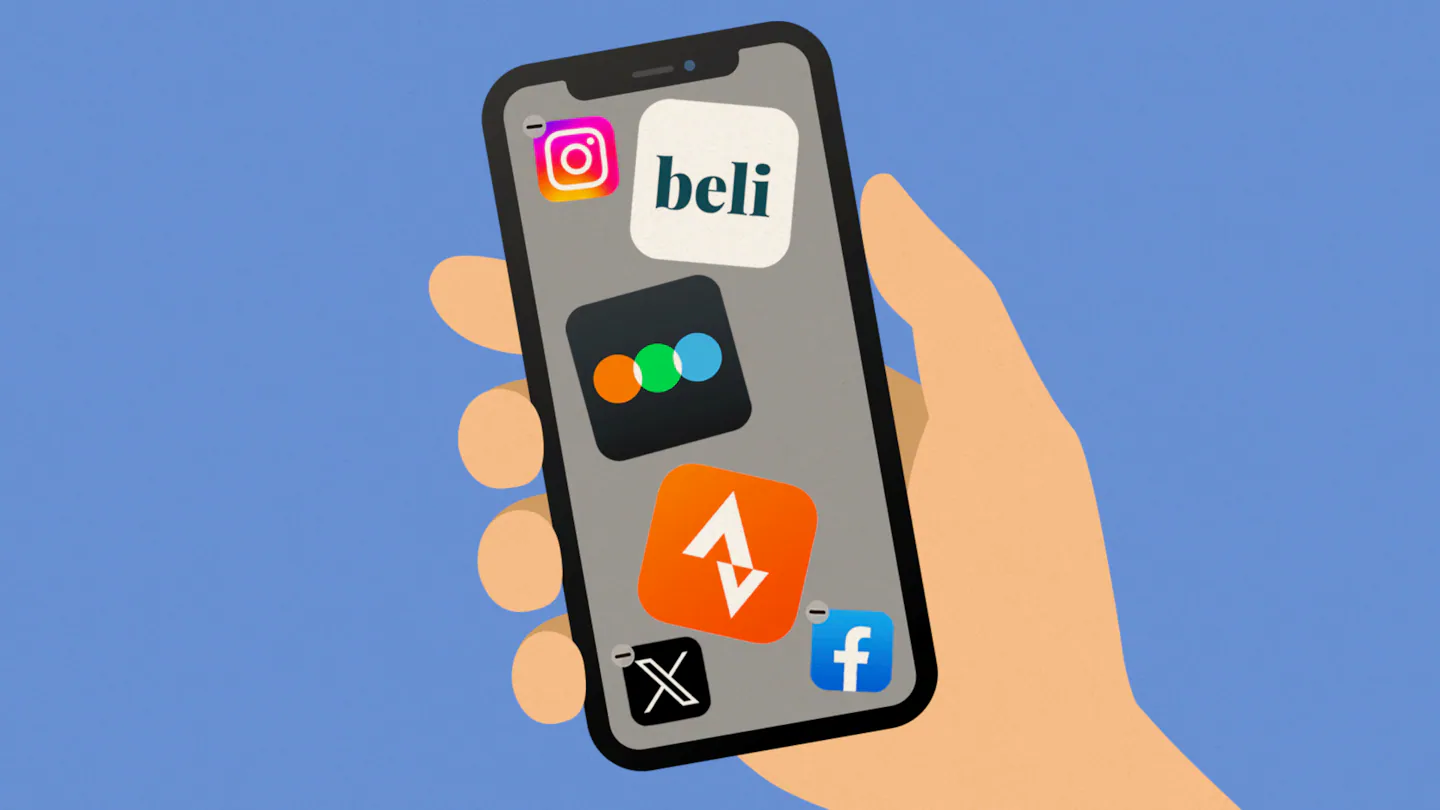Copyright The Boston Globe

“Moving to Boston and already having Strava, I was able to dive head first into not only the Boston running community, but the Boston community as a whole,” Alan, 23, said. Seeking community through their hobbies, millions of people are flocking to niche apps such as Strava, film-focused Letterboxd, and food and dining platform Beli. The apps serve as both a personal diary and a tight-knit social network that some users prefer over larger sites that they believe have grown toxic. “The goal is not to capture your time for multiple hours a week — it’s to connect with you around this very specific sort of thing,” said Ethan Zuckerman, a University of Massachusetts Amherst associate professor who studies the internet and social networks. “For people who manage to find their community there, they might be enormously important spaces.” Data provided by Sensor Tower, an analytics firm, show that monthly active users for these popular, hobby-focused apps have all grown by at least 50 percent since the start of 2024. Beli has seen its monthly active users vault from roughly 200,000 at the start of 2024 to 1.1 million as of mid-October, according to quarterly figures. Meanwhile, Strava has grown from 32 million users to a peak of 55 million this year, and Letterboxd eclipsed 10 million users since July of this year after beginning 2024 with an active user base of nearly 6 million. While early growth isn’t a guarantee to long-term success, platforms such as Strava and Letterboxd — which launched in 2009 and 2011, respectively — have shown that they have staying power compared to recent short-lived phenomenon such as photo-sharing app BeReal and the audio-focused Clubhouse. One appeal of the apps is that they can serve as digital journals. On Letterboxd, users log films they’ve seen with star ratings and reviews, and can create a “watchlist” for movies to see in the future. The app also organizes members’ viewing history into a diary, showing what days you watched certain movies. The app lets users follow other members, giving an insight into the watch history of close friends or even celebrities such as Boston native Ayo Edebiri, who until recently posted regularly on Letterboxd. The app prioritizes new reviews from friends and lacks a constant feed of random and algorithmic-driven users that have come to dominant apps such as X and Instagram. Unlike Instagram or Facebook, the value of platforms such as Strava and StoryGraph is that they require members to get off the apps first, and then get back online to post and talk about their latest bike ride or book they had read. “It’s not meant to be a continuous doomscrolling that you might see on the TikToks or Facebook or Instagrams of the world,” said Chen Cao, 33, a health care worker who lives in Boston and uses Strava. “You’re not just on there because you want to be an influencer … you actually just truly want to be like a curator of experiences or show your progress.” In 2023, Zuckerman developed a theory that some social networks are “big rooms,” while others are “small rooms.” Big rooms such as X, he said, are “for everybody and for everything.” They allow many different topics to be amplified to the masses, but are also prone to harassment and spam as users hope to go viral. There’s also a growing sense that those larger social media networks, while still very much media, are no longer that social. Spam accounts, advertisements, and artificial intelligence-generated content that cloud online feeds have limited people’s digital interaction with other people. Smaller rooms don’t typically encounter the same problems, which may help them provide more genuine spaces for interaction because of the constraints in topic and scale. “If you’re on Letterboxd and you are posting constantly about the Trump administration, someone is going to say, ‘Dude, this is an Arby’s, this is not what this is for,’” Zuckerman said, referring to the popular online meme that ridicules over-the-top speech in inappropriate places. Similar to Yelp, users on the food app Beli rate and review restaurants, cafes, and bars on Beli with a score out of 10. But a key difference is that ratings on Beli — which cofounders Judy Thelen and Eliot Frost began developing in 2019 while students at Harvard Business School — are personalized to each user. Beli also has a social feed with reviews and photos, allowing for both curated lists of restaurants as well as the spontaneous finds of close friends. “We can give you the best personalized recommendations, but really looking to your friends is always going to be first,” said Thelen, Beli’s chief executive. Users are both encouraged and rewarded through personalized ratings to log every meal. Aayushi Patel, 21, said she prefers Beli over larger social media platforms such as Instagram, where posting can feel “performative.” “I can just openly be myself on [Beli] compared to Instagram, where there’s such a broad audience,” said Patel, a Harvard University graduate student. For Aaron Waxman, 69, a doctor who lives in Newton, outlets such as Facebook have become “nasty” due to toxic conversations about politics. But on Strava, where he can log his bike rides, see where his friends are cycling, and share kudos with strangers from around the world, it’s all about positivity. “There are probably a lot more people that I’ve never met and probably will never meet that give me kudos,” Waxman said. “How that happened, I have no idea, I think it’s just fun to see.” Despite the upbeat nature on these apps, users recognize that there’s also the potential to go too far. Niche apps can give people more data about their habits than ever before — Strava and Letterboxd, for example, charge subscriptions for additional features that includes heightened metrics — and there’s a fear that the joy of their hobbies can transform into an obligation to use an app. (Many of these apps also make money through advertisements or brand partnerships, and some are backed by venture capital.) “If you’re truly just dining to collect the restaurants, the utility of it is diminished,” said Thelen, the Beli cofounder. “That’s a problem.” While they were cognizant of the risk, most people who spoke to the Globe weren’t too worried. The apps are generally designed for users to spend a lot of time offline and then go online for only a few minutes. And while Strava has had in-app messaging for nearly two years, many other niche apps don’t, leading foodies, cinephiles, and bookworms to use social posts as real-life conversation starters. “The point of running is you do something that is aggressively not fun so that you can feel good that you’ve done it,” Zuckerman said. “Something like Strava actually seems perfectly suited to complement running.” “Part of what you enjoy about the hobby is not just that you’re doing it, but the connections that you’re making around,” he added.



